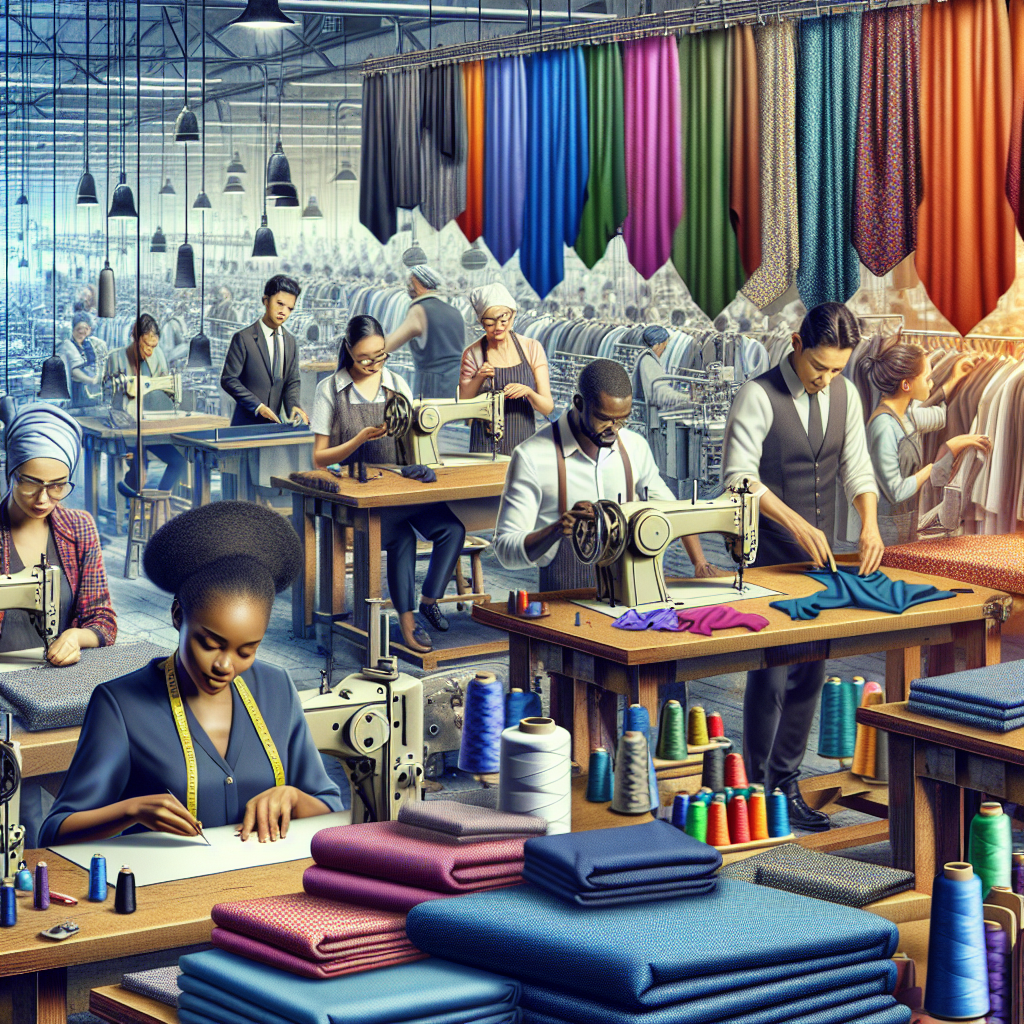National Dialogue in Jordan Champions Disability Inclusion in Garment Industry
A central moment of the session was the presentation of the ILO’s assessment study, which offered a sobering look into the state of disability inclusion in Jordan’s garment factories.

The Higher Council for the Rights of Persons with Disabilities (HCD), in collaboration with the International Labour Organization (ILO), convened a pivotal national dialogue session today titled “Promoting the Inclusion of Persons with Disabilities in Jordan’s Garment Sector.” The session brought together key national and international stakeholders to discuss the status quo, share best practices, and strategize ways to overcome challenges hindering the integration of persons with disabilities in Jordan’s vital garment industry.
The event marked a significant milestone in a broader effort led by the ILO and funded by the Government of Canada to transform Jordan’s garment sector into a more inclusive and competitive environment. This initiative focuses on building institutional capacity, raising awareness, and promoting equitable employment practices that empower individuals with disabilities.
Highlighting National Priorities and Shared Commitments
Opening the dialogue, Ms. Ghadir Al-Hares, Assistant Secretary-General for Technical Affairs at the HCD, underscored the value of the recent ILO report “Assessment of the Situation of Workers with Disabilities in Jordan’s Garment Factories.” She described the study as foundational to creating a national roadmap for equitable labour market access. Al-Hares emphasized the urgency of cultivating inclusive workplaces that respect diversity, eliminate barriers, and end discrimination:
“We must move toward a labour market where talent and ability are the only criteria that matter.”
Following Al-Hares, Ms. Amal Mowafi, ILO Country Coordinator in Jordan, echoed these sentiments and drew links to global disability rights developments:
“Our efforts align closely with the outcomes of the Global Disability Summit in Germany and the Amman–Berlin Declaration. It's time to move from commitment to implementation.”
Key Findings: Persistent Barriers and Institutional Gaps
A central moment of the session was the presentation of the ILO’s assessment study, which offered a sobering look into the state of disability inclusion in Jordan’s garment factories. The study identified multiple obstacles:
-
Infrastructure limitations in factory buildings and facilities
-
Institutional gaps in human resources policies and awareness
-
Social stigma that affects the hiring and retention of workers with disabilities
-
Lack of reasonable accommodations to support inclusive employment
Despite Jordan’s progressive national legislation on disability rights, practical implementation remains uneven across the sector.
Practical Tools and Policy Guidance Introduced
To support actionable change, participants explored the newly developed Guidelines for Enhancing the Employment of Persons with Disabilities in the Garment Sector. These guidelines offer practical tools for HR professionals, factory management, and workplace committees to implement inclusive hiring practices, ensure workplace accessibility, and promote a supportive environment for workers with disabilities.
The guidelines are grounded in international good practices and are tailored to the realities of Jordan’s export-driven garment industry.
Broad Stakeholder Engagement and Shared Responsibility
The dialogue welcomed contributions from a range of participants including the Ministry of Labour, employers, the General Trade Union for Workers in the Textile, Garment and Clothing Industries, and members of civil society.
Ms. Sumaya Al-Zoubi, Disability Employment Officer at the Ministry of Labour, reaffirmed the Ministry’s priority to safeguard the rights of all workers and enhance workplace safety through robust inspection mechanisms.
Mr. Khaled Al-Omrani, Vice President of the General Trade Union, emphasized:
“The union is committed to integrating disability rights into collective agreements and ensuring all workers enjoy the right to decent work.”
Ms. Ann Theresa, Executive Director of Culture and Human Affairs at Classic Fashion, pointed out the long journey ahead, saying:
“Inclusion won’t happen overnight, but unless we act now, it won’t happen at all.”
Legislative and Political Support Echoed
Adding a legislative perspective, MP Abdulraouf Al-Rubaihat, a member of the Parliamentary Labour Committee, pledged continued parliamentary support for legal reforms that enhance the inclusion of persons with disabilities across all sectors of Jordanian society.
“We are ready to work with all partners to amend laws and create opportunities that serve the public good and uphold the rights of persons with disabilities.”
Call to Action and Future Outlook
The event concluded with a strong call to deepen multi-stakeholder collaboration to reshape Jordan’s garment industry into a model of inclusive employment. The ILO and HCD emphasized the importance of continuing joint advocacy, training, and policy reforms to build an equitable future for all workers—regardless of ability.
This national dialogue not only reaffirmed Jordan’s commitment to disability rights but also set the stage for concrete, measurable progress in one of its most significant industrial sectors.










